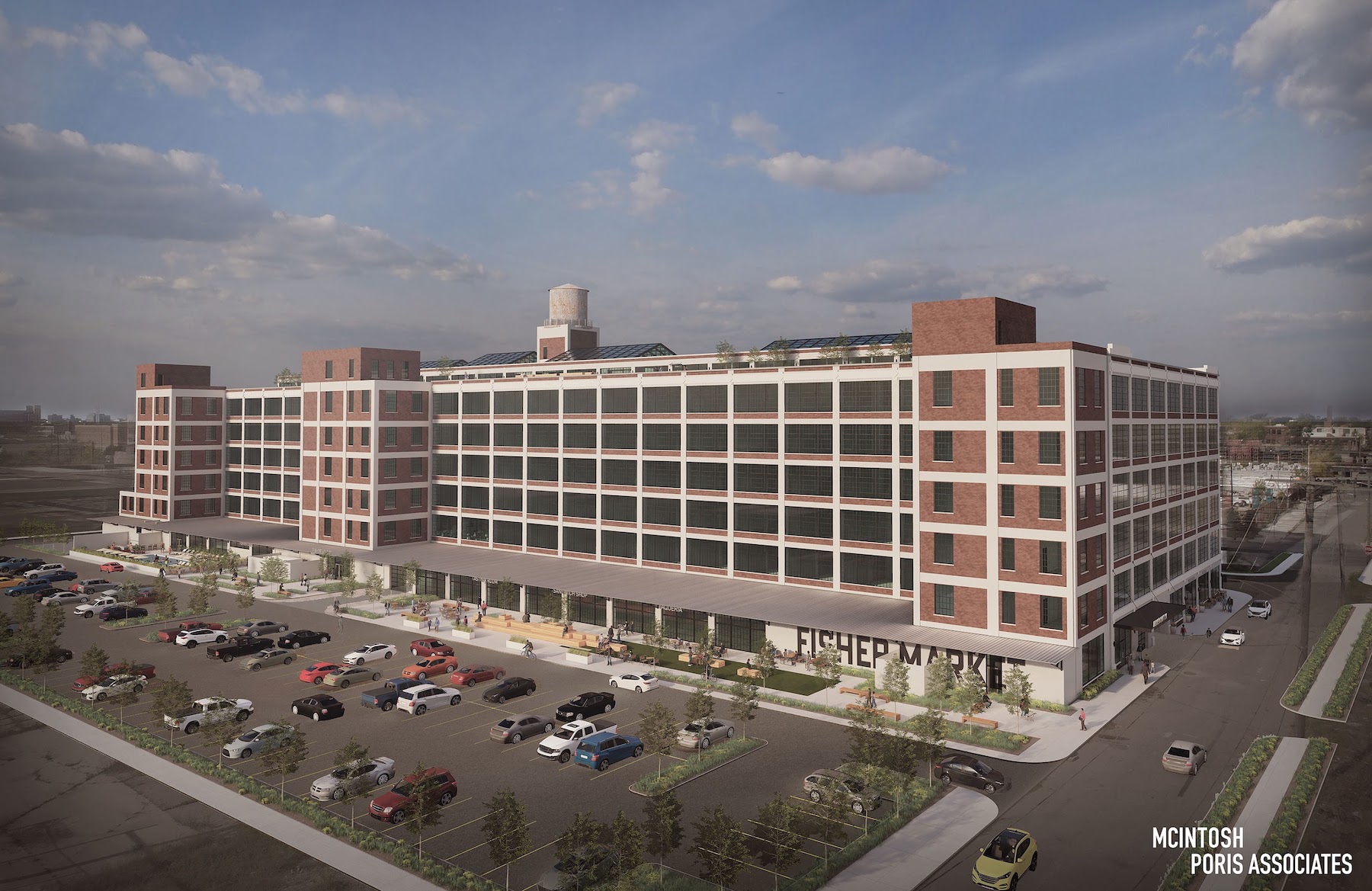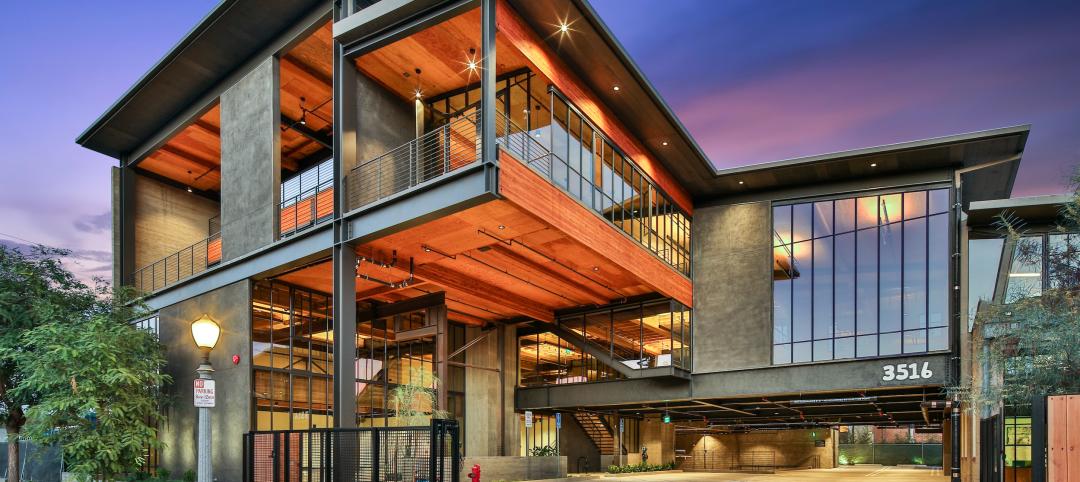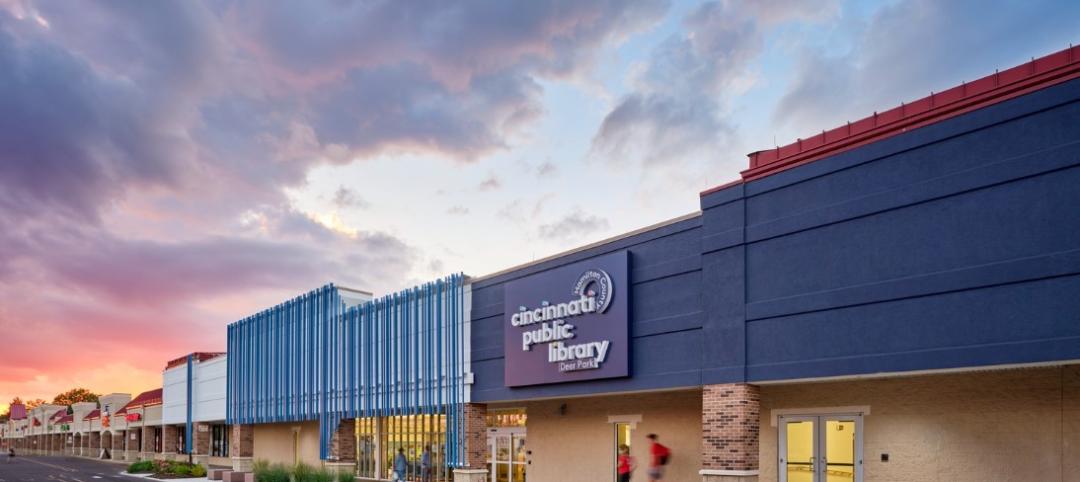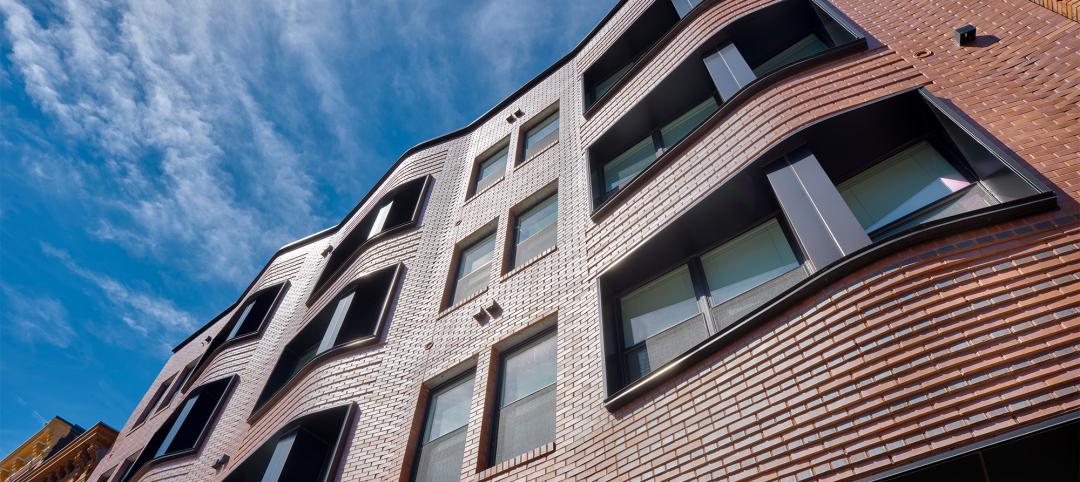Fisher Body was an automobile coachbuilder founded in 1908. Its 21st plant, a six-story 600,000-sf factory in Detroit that produced car chassis, was said to be one of Motor City’s first poured-concrete buildings. General Motors purchased the plant in 1926 and made Cadillacs and Buicks there through 1984. The plant then went from being occupied by paint manufacturers for nearly a decade, to abandonment until the city of Detroit took ownership of the graffiti-strewn structure in 2000.
The building seemed destined for demolition—especially after a fire in 2014 damaged part of the plant—until two local developers Greg Jackson and Richard Hosey, and the architecture, interiors, and planning firm McIntosh Poris Associates, came up with a mixed-use design alternative that will reuse the plant for housing.
Fisher 21 Lofts, as the repurposed site is called, will have 433 apartments, one-fifth of which designated as affordable. McIntosh Poris’ design features three skylight-capped atria with courtyards, 28,000 sf of restaurants and retail, and 15,000 sf of coworking office space on the ground and second floor levels. The ground floor will also offer an outdoor pool terrace on the building’s south side.

PRESERVING HISTORY
The building’s façade will receive a full historic preservation, with all window openings being retained as originally designed and the windows themselves being replaced. Existing masonry will be cleaned and restored. The building’s signature water tower with be retained, and its existing penthouse transformed into a clubhouse and fitness center.
Fisher 21 Lofts’ amenities include a two-acre roof with a lounge, dog park and spa, and a quarter-mile walking track with views of Detroit’s skyline.
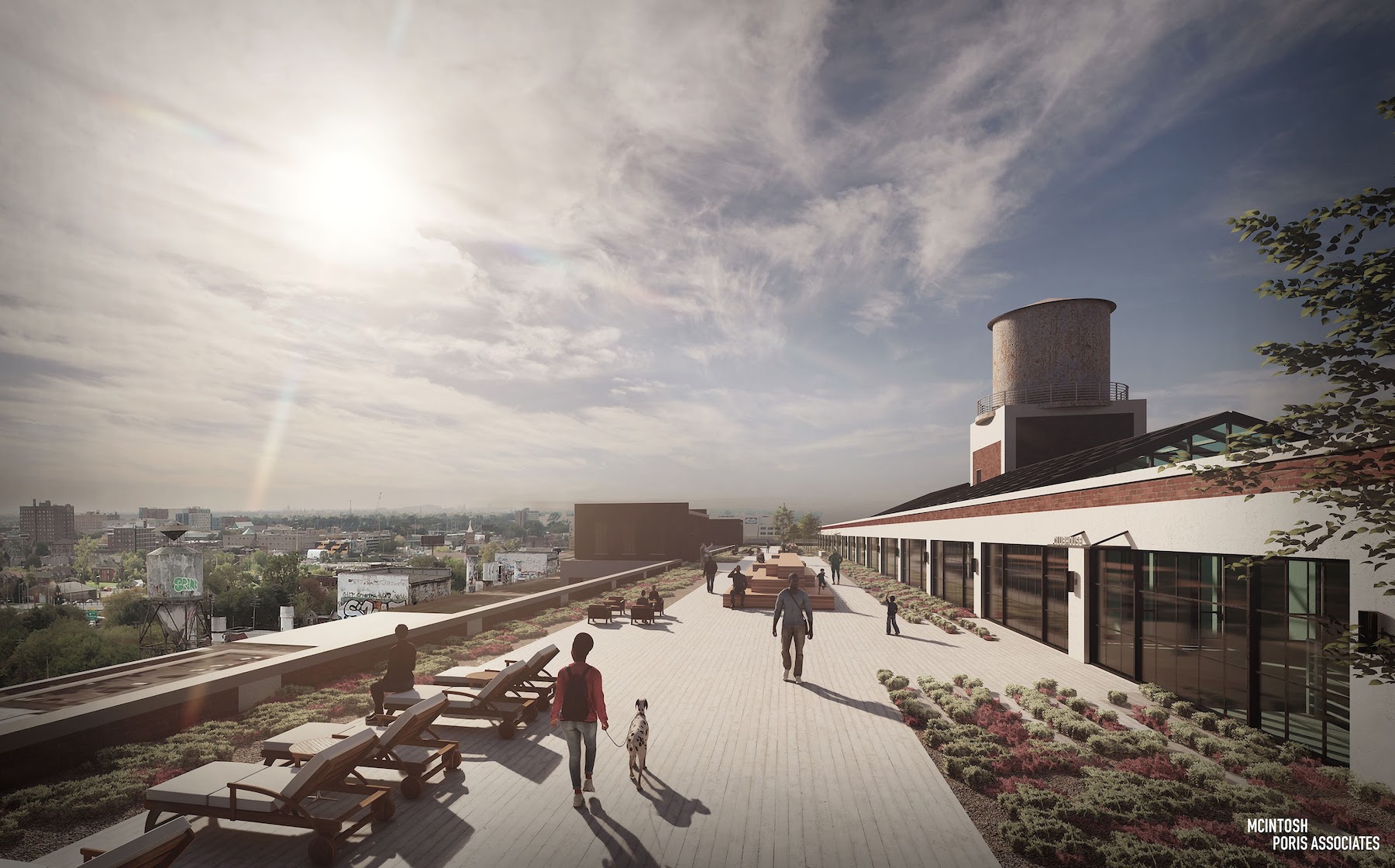
The lofts’ construction is expected to start later this year, and should be ready for occupancy by 2025. The project’s building team includes Lewand Building Companies (CM), Kidorf Preservation Consulting (historic tax-credit consultant), Mannik Smith Group (CE, landscape architect), Applied Environmental (environmental engineer), ETS Engineering (EE), Sellinger Associates (M/P engineer), IMEG (SE), Capture It (3D scanning), and Amy Baker Architect (spec writing).
This $134 million adaptive reuse is believed to be the largest minority-led development in Detroit’s history, teaming Jackson Asset Management, Hosey Development, and Lewand Development. The Detroit Free Press reported that the developers acquired the building for less than $1 million, and that it would have cost the city between $5 million and $10 million to tear down the building.
Related Stories
Sustainability | May 11, 2023
Let's build toward a circular economy
Eric Corey Freed, Director of Sustainability, CannonDesign, discusses the values of well-designed, regenerative buildings.
Office Buildings | May 4, 2023
In Southern California, a former industrial zone continues to revitalize with an award-winning office property
In Culver City, Calif., Del Amo Construction, a construction company based in Southern California, has completed the adaptive reuse of 3516 Schaefer St, a new office property. 3516 Schaefer is located in Culver City’s redeveloped Hayden Tract neighborhood, a former industrial zone that has become a technology and corporate hub.
Libraries | Mar 26, 2023
An abandoned T.J. Maxx is transformed into a new public library in Cincinnati
What was once an abandoned T.J. Maxx store in a shopping center is now a vibrant, inviting public library. The Cincinnati & Hamilton County Public Library (CHPL) has transformed the ghost store into the new Deer Park Library, designed by GBBN.
Affordable Housing | Mar 8, 2023
7 affordable housing developments built near historic districts, community ties
While some new multifamily developments strive for modernity, others choose to retain historic aesthetics.
Adaptive Reuse | Mar 5, 2023
Pittsburgh offers funds for office-to-residential conversions
The City of Pittsburgh’s redevelopment agency is accepting applications for funding from developers on projects to convert office buildings into affordable housing. The city’s goals are to improve downtown vitality, make better use of underutilized and vacant commercial office space, and alleviate a housing shortage.
Giants 400 | Feb 6, 2023
2022 Reconstruction Sector Giants: Top architecture, engineering, and construction firms in the U.S. building reconstruction and renovation sector
Gensler, Stantec, IPS, Alfa Tech, STO Building Group, and Turner Construction top BD+C's rankings of the nation's largest reconstruction sector architecture, engineering, and construction firms, as reported in the 2022 Giants 400 Report.
Multifamily Housing | Jan 23, 2023
Long Beach, Calif., office tower converted to market rate multifamily housing
A project to convert an underperforming mid-century office tower in Long Beach, Calif., created badly needed market rate housing with a significantly lowered carbon footprint. The adaptive reuse project, composed of 203,177 sf including parking, created 106 apartment units out of a Class B office building that had been vacant for about 10 years.
Adaptive Reuse | Jan 12, 2023
Invest in existing buildings for your university
According to Nick Sillies of GBBN, students are increasingly asking: "How sustainable is your institution?" Reusing existing buildings may help answer that.
Government Buildings | Jan 9, 2023
Blackstone, Starwood among real estate giants urging President Biden to repurpose unused federal office space for housing
The Real Estate Roundtable, a group including major real estate firms such as Brookfield Properties, Blackstone, Empire State Realty Trust, Starwood Capital, as well as multiple major banks and CRE professional organizations, recently sent a letter to President Joe Biden on the implications of remote work within the federal government.
Adaptive Reuse | Dec 21, 2022
University of Pittsburgh reinvents century-old Model-T building as a life sciences research facility
After opening earlier this year, The Assembly recently achieved LEED Gold certification, aligning with the school’s and community’s larger sustainability efforts.


